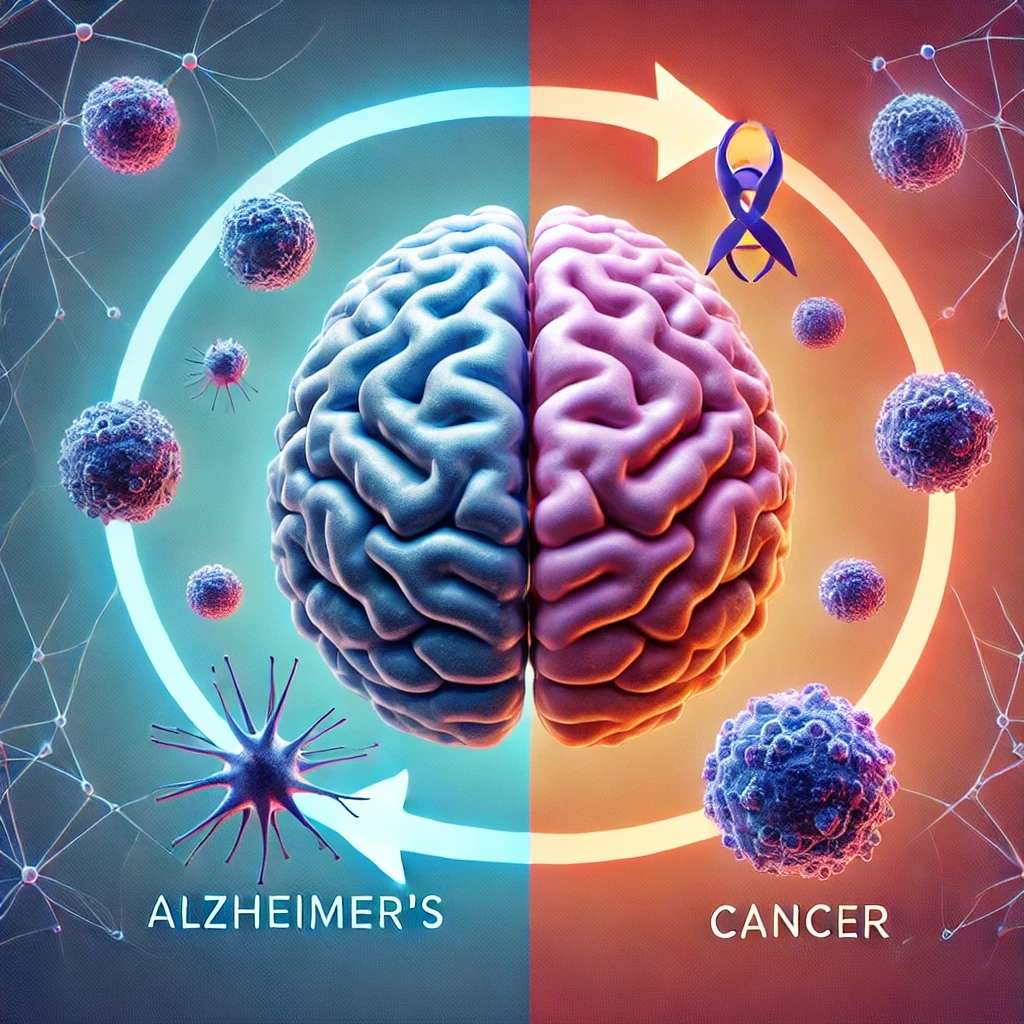Sep 17, 2024
Science News
Recent research reveals a fascinating link between two seemingly unrelated conditions: Alzheimer's disease and cancer. Studies suggest an inverse relationship, meaning individuals who develop one condition may be less likely to develop the other. This discovery opens up new possibilities for understanding disease mechanisms and potential treatments.
What Is Alzheimer’s Disease?
Alzheimer's disease is a progressive neurodegenerative condition that leads to memory loss, cognitive decline, and behavioral changes. It is the most common cause of dementia, affecting millions worldwide. Despite significant research efforts, the exact causes remain unclear, but new findings, such as this inverse relationship with cancer, offer hope for breakthroughs.
Cancer: A Complex Group of Diseases
Cancer refers to a wide variety of diseases characterized by the uncontrolled growth of abnormal cells in the body. Cancer is known to have multiple causes, including genetic mutations, environmental factors, and lifestyle influences. Interestingly, emerging research suggests that cancer and Alzheimer’s disease may share underlying biological pathways, despite their opposite effects on the body.
The Inverse Relationship Between Alzheimer's and Cancer: What Does the Data Show?
Studies have shown that individuals diagnosed with Alzheimer’s disease are less likely to develop cancer, and vice versa. A growing body of research, including the latest study reported by Medical Xpress, supports this inverse relationship. The researchers propose that biological factors, such as cell death mechanisms, immune responses, or DNA repair pathways, could be involved in this surprising connection.
Potential Mechanisms Behind the Relationship
Several hypotheses have emerged to explain this inverse relationship:
Cellular Senescence: In cancer, cells evade the natural aging process (senescence) and continue to divide uncontrollably. In Alzheimer’s disease, the opposite occurs, with an accelerated rate of cell death.
Immune System Response: Alzheimer's disease and cancer may trigger opposite immune system responses. While cancer thrives on evading immune detection, Alzheimer's may involve an overactive immune response, leading to neuron damage.
Genetic Factors: Genetic predispositions may influence whether an individual is more prone to develop cancer or Alzheimer’s, with certain genes offering protection against one disease but increasing the risk of the other.
Implications for Future Research and Treatment
Understanding the relationship between Alzheimer's disease and cancer may lead to new therapeutic approaches. Researchers hope that uncovering shared biological pathways could pave the way for treatments that target both conditions. For example, drugs developed for cancer might be repurposed to treat or prevent Alzheimer's, and vice versa.
Conclusion: How 360/Health Can Help You Stay Informed
At 360/Health, we keep you up to date with the latest medical discoveries that can impact your health. Our platform brings together health data and services, making it easier for you to stay informed and get the care you need. Whether you’re managing a chronic condition, like Alzheimer’s or cancer, or seeking answers to your healthcare questions, we’re here to help.
Read in full here
